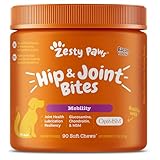Recently, a growing interest has been in providing diverse and nutritious diets for our canine companions. As responsible pet owners, it’s essential to scrutinize each component of our furry friends’ meals. One common question that arises is: can dogs eat Cornish hens?
Cornish Hens for Dogs Overview
Feeding your dog Cornish hens in moderation can offer several potential benefits. The lean protein content supports muscle development, while vitamins and minerals aid in maintaining a robust immune system. The natural flavors of Cornish hens may entice picky eaters, making mealtime more enjoyable for your canine companion.
Understanding Canine Dietary Needs
Before we explore the compatibility of Cornish game hens with a dog’s diet, it’s crucial to grasp the nutritional requirements of our four-legged friends.
Canines are omnivores, and their diet should include a balance of proteins, fats, carbohydrates, vitamins, and minerals to support overall health and well-being.
Nutritional Profile of Cornish Hens
Cornish game hens, small chickens known for their tender meat, can be a source of essential nutrients. They are rich in high-quality proteins, vitamins, and minerals such as iron and zinc.
Incorporating nutrient-dense foods into a pup’s diet can contribute to a well-rounded and wholesome nutritional profile.
Can Dogs Eat Cornish Hens?
Yes, dogs can eat Cornish hen, but removing bones and avoiding seasonings, marinades, or excessive fat is essential. Feed plain, cooked, boneless Cornish hen in moderation and consult your vet if you have concerns or if it’s a new addition to your dog’s diet.

While cooked, boneless, and plain poultry meat can be a good source of protein for dogs, there are some important considerations:
-
Bones: Avoid feeding your dog cooked bones, tiny ones like those found in Cornish hens. Cooked bones can splinter and cause serious harm to a dog’s digestive tract.
-
Seasonings and Marinades: If the Cornish hen has been seasoned or marinated with ingredients like garlic, onions, or other spices, it’s best to avoid giving it to your dog. These ingredients can be toxic to dogs.
-
Cooking Method: The cooking method matters. Boiled or baked plain Cornish game hen without added seasonings or oils is preferable. Avoid fried or heavily seasoned preparations.
-
Portion Control: Dogs have different dietary requirements than humans, and their portion sizes should be appropriate for their size and breed. Too much fatty food, even if it’s lean poultry, can lead to digestive upset or pancreatitis.
-
Consult Your Vet: Before introducing new foods into your dog’s diet, it’s always a good idea to consult with your veterinarian. They can provide guidance based on your dog’s specific health needs and dietary requirements.
Related Post: Can Dogs Eat Chicken Pot Pies?
Raw Vs Raw Vs Cooked Cornish Hen For Dogs
Raw Cornish Hen for Dogs
- Advantages:
- Nutrient Retention: Raw food generally retains more nutrients compared to cooked food.
- Dental Health: Chewing on raw bones can promote dental health in canines.
- Concerns:
- Bacterial Contamination: Raw meat can carry harmful bacteria such as Salmonella or E. coli, which may pose a risk to both the dog and its human caretakers.
- Digestive Risks: Some pets may have difficulty digesting raw bones, leading to issues like constipation or gastrointestinal obstructions.
- Balanced Diet: Feeding only raw meat may not provide a balanced diet, lacking essential nutrients that puppies need.
Cooked Cornish Hen For Dogs
- Advantages:
- Reduced Bacterial Risk: Cooking eliminates many harmful bacteria, reducing the risk of foodborne illnesses.
- Digestibility: Cooking makes the food easier to digest for some canines, especially those with sensitive stomachs.
- Concerns:
- Nutrient Loss: Cooking can lead to the loss of some nutrients, although this can be mitigated with proper preparation methods.
- Bones: Cooked bones can become brittle and may pose a choking hazard or cause digestive issues.
Safe Option:
While Cornish hens can be a nutritious addition to a dog’s diet, there are potential risks to be mindful of. Bones, especially when cooked, can pose a choking hazard and may splinter, causing digestive issues.
It’s crucial to ensure that the Cornish game hen is thoroughly cooked, boneless, and served in appropriate portions to avoid adverse effects on your dog’s health.

Benefits
-
Rich in protein for muscle development and maintenance.
-
Provides a range of vitamins and minerals for overall health.
-
Offers a flavorful option that dogs often find enjoyable.
-
Contributes to a diverse protein intake, preventing allergies and offering different nutrients.
-
Chewing on boneless meat can help promote dental health.
-
Contains some healthy fats beneficial for your dog.
-
Allows for control over ingredients, avoiding harmful additives.
-
Adds variety to the diet, contributing to mental stimulation and preventing boredom.
Related Post: Can Dogs Have Shrimp Fried Rice?
Preparing Cornish Hens for Dogs
Cooking Cornish hen for canines requires a simple and plain approach to ensure the dish is safe and suitable for your pet. Here’s a basic recipe you can follow:
Ingredients:
- Boneless Cornish hens
- Water
Instructions:
- Preparation:
- Thoroughly wash and clean the Cornish hens to remove excess fat or contaminants. Ensure there are no bones in the meat.
- Cut into Bite-Sized Pieces:
- Cut the Cornish hens into small, bite-sized pieces suitable for your dog’s size. This makes it easier for them to eat and reduces the risk of choking.
- Cooking:
- Boil the Cornish hen pieces in plain water. Avoid using any seasonings, salt, or additives. Simmer until the meat is fully cooked. Cooking time may vary, but ensure it reaches a safe internal temperature.
- Remove Skin:
- If the Cornish hen has skin, remove it before serving it to your dog. The skin can be fat, which may not be suitable for all dogs.
- Cooling:
- Allow the cooked Cornish hen pieces to cool before serving them to your dog. This helps prevent burns and makes the dish more palatable.
- Serve in Moderation:
- Dogs should only receive Cornish hens as an occasional treat. Consider your dog’s size and dietary needs when determining portion sizes.
- Monitor Your Dog:
- Introduce the cooked Cornish hen to your dog’s diet gradually and monitor them for any adverse reactions or allergies. If your dog has any dietary restrictions or health concerns, consult your veterinarian before introducing new foods.
- Monitoring Your Dog’s Reaction:
- Dogs are unique, and their digestive systems may react differently to new foods. When introducing Cornish hens into your dog’s diet, monitor their reaction closely. Look for any signs of allergies, gastrointestinal upset, or changes in behavior. If you observe any adverse reactions, consult with your veterinarian promptly.
Final Thoughts: Can Dogs Eat Cornish Hens?
In conclusion, Cornish hens can be a nutritious and flavorful addition to your dog’s diet when prepared and served responsibly. Understanding your dog’s nutritional needs, eliminating bones, and consulting with your veterinarian will help ensure a positive dining experience for your canine companion.
As with any dietary changes, moderation and careful observation are crucial to promoting your beloved pet’s healthy and happy life.










![Can Dogs Eat Blood? 7 Side Effects [Expert Opinion]](https://petskor.com/wp-content/uploads/2022/04/Webp.net-resizeimage-12.jpg)
